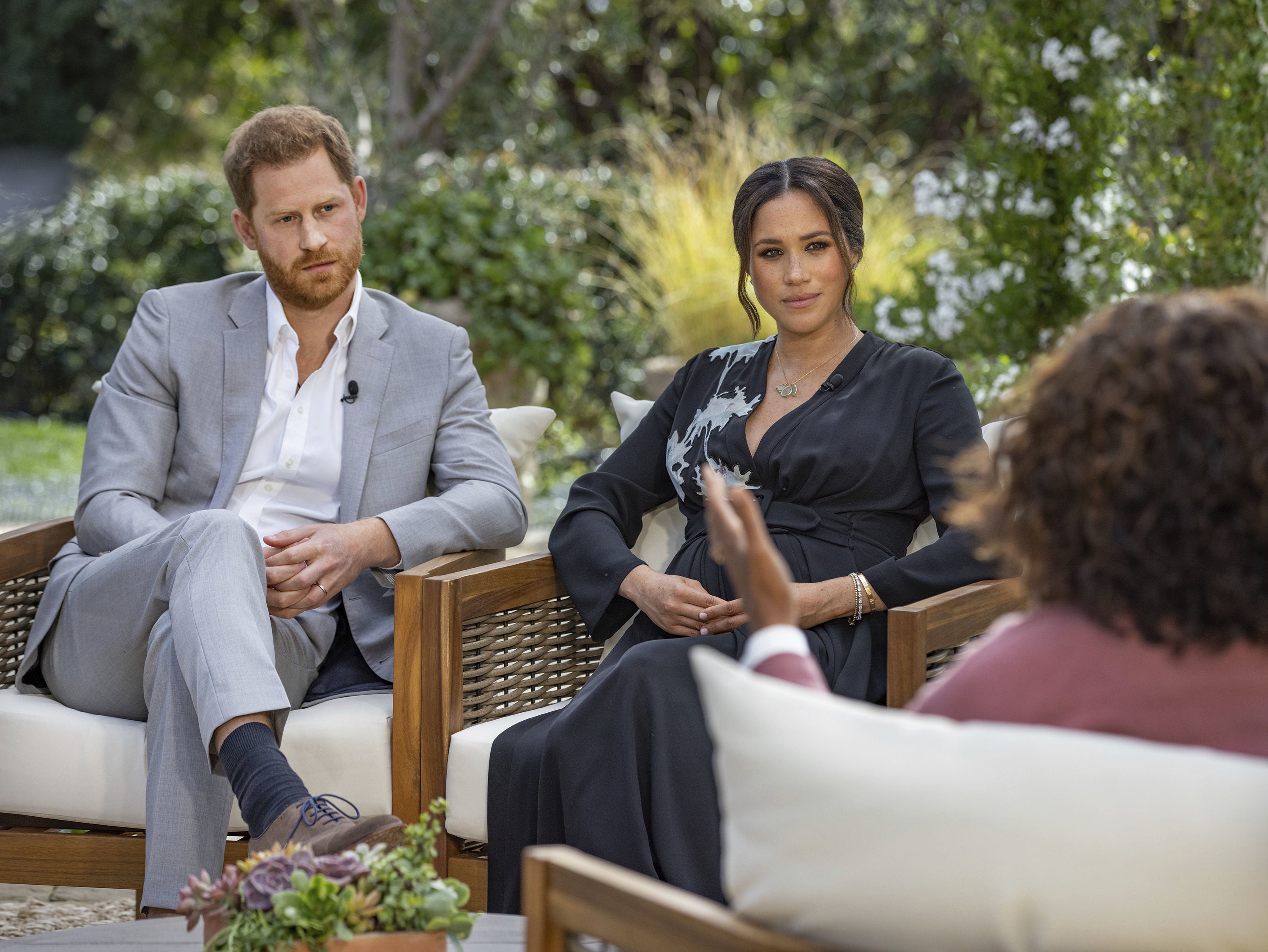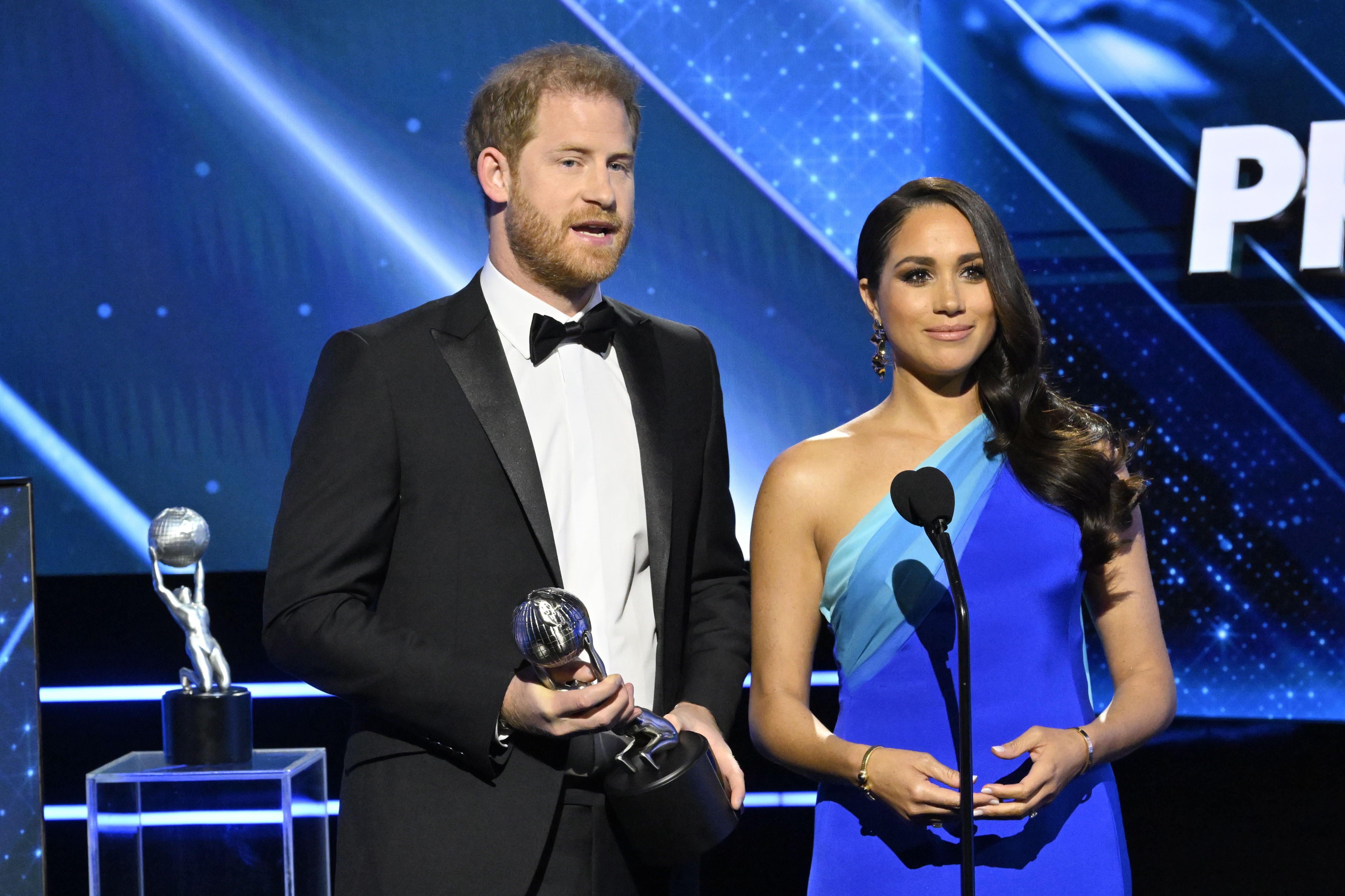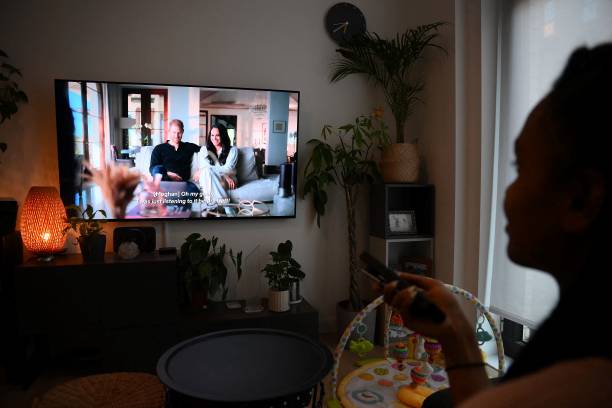Prince Harry was right to tell his story – but he still has a lot to learn about racism
Harry himself has acknowledged that he’s recently become a student of these matters. Now, he’s schooling the masses on what is and isn’t racism, something he’ll never actually experience himself

Your support helps us to tell the story
From reproductive rights to climate change to Big Tech, The Independent is on the ground when the story is developing. Whether it's investigating the financials of Elon Musk's pro-Trump PAC or producing our latest documentary, 'The A Word', which shines a light on the American women fighting for reproductive rights, we know how important it is to parse out the facts from the messaging.
At such a critical moment in US history, we need reporters on the ground. Your donation allows us to keep sending journalists to speak to both sides of the story.
The Independent is trusted by Americans across the entire political spectrum. And unlike many other quality news outlets, we choose not to lock Americans out of our reporting and analysis with paywalls. We believe quality journalism should be available to everyone, paid for by those who can afford it.
Your support makes all the difference.Prince Harry was wrong to suggest that there’s a substantive difference between “unconscious bias” and racism. There isn’t.
During an ITV interview that aired on Sunday, Prince Harry denied accusing the royal family of racism in his Oprah interview in March 2021, after Meghan revealed an unnamed family member raised concerns about how dark their unborn son Archie’s skin would be.
“No I didn’t... the British press said that... did Meghan ever mention that they’re racist? There was concern about his skin colour,” the duke told interviewer Tom Bradby. When Bradby asked: “Wouldn’t you describe that as essentially racist?” Harry replied: “I wouldn’t, not having lived within that family.”
Instead, the Duke of Sussex went on to suggest that unconscious bias was to blame for his relative’s worry about how Black his unborn child would be. Harry added: “Going back to the difference between what my understanding is because of my own experience, the difference between racism and unconscious bias, the two things are different.”
Unconscious bias is often referenced in cases where a person is unaware of prejudices, or unfair beliefs, that they hold about a group of people that affects their behaviour and decisions. “Unconscious bias” sounds nicer than racism, and is usually meted out to explain away racism and make racists feel comfortable. It is often used as a tool with which people can be absolved of responsibility for their actions and thinking.
Is the impact of the bias, “unconscious” or not, any different and any less harmful, though? No. And what’s more, the royal family’s lack of meaningful response to both the racist attacks against Meghan among parts of the British press and the couple’s Oprah interview speaks volumes.

Harry came across as relaxed, poised but assertive during his interview with Tom Bradby, which aired on ITVX yesterday. In light of the difficult time he has gone through recently, many were pleased to see him strike that tone.
However, it was obvious that the fragmented condition of his family is agonising for him and, moreover, his priority is still to protect the monarchy. Both points are understandable, but I was initially taken aback by the vigour with which Harry attempted to rationalise his point about unconscious bias being different from racism.
After all, Harry himself has acknowledged that he’s recently become a student of these matters. He’s confessed to being “incredibly naive” on issues around race prior to meeting Meghan, who says she was also naive, in 2016 which wasn’t that long ago. Now, he’s schooling the masses on what is and isn’t racism which he’ll never actually experience himself.
It also seemed apparent that the royal centred his own hurt feelings at having been called a racist for wearing a Nazi uniform to a 2005 party aged 20 years old, rather than the lives of people who bear the brunt of racism and biases every day.
Of course, since we’re now learning that Meghan and Harry didn’t mean to suggest that the royal family are racist – or the senior relative was concerned about Archie’s skin colour – then it begs the question of why didn’t they issue a public statement and clarify their position sooner.
They’ve also recently collected anti-racism awards pegged to their “stance against structural racism” in the royal family, as well as their work through the Archewell Foundation, in the case of the National Association for the Advancement of Colored People accolade.

Kerry Kennedy, Robert F Kennedy’s daughter and president of the Ripple of Hope human rights awards, said of the couple who picked up their trophy in December: “They went to the oldest institution in UK history and told them what they were doing wrong, that they couldn’t have structural racism within the institution.
“They knew that if they did this there would be consequences, that they would be ostracised, they would lose their family, their position within this structure, and that people would blame them for it. They have done it anyway because they believed they couldn’t live with themselves if they didn’t question this authority. I think they have been heroic in taking this step.”
While many may see the royal institution as the world’s foremost symbol of white supremacy and Black oppression; Harry sees all that he’s ever known – home, normality and family.
So, like his family members, like anyone, his instinct appears to be to preserve what he values and to shield those he loves as many others would do with their own families, rightly or wrongly.
Moreover, by acknowledging that racism exists within his family, Harry would have to confront and unravel the very foundation upon which the monarchy exists and, furthermore, the role he plays in such an institution.
This inclination to protect his own was apparent to me during Harry and Meghan’s Netflix docuseries which, though considered and insightful, saw the couple remain largely quiet during the segment about the royal family’s complicated history, while excellent commentators did much of the heavy lifting there.
When the couple did speak up around issues relating to the Commonwealth and royals, they spoke passionately of the Windsors’ “missed opportunity” to use Meghan, with her melanated skin, to endear the clan among Black and brown communities in Commonwealth countries who look like the duchess but are increasingly becoming disillusioned with the crown.

Indeed, in the ITVX interview, Harry tells us that he still “believes in” the British monarchy as an institution and further described it as a unifying entity, at its best, despite the violence and division in its wake – since 1066 to date.
It was foolish, therefore, for anyone to think that Harry’s battle against the press and some of his own kin had anything to do with standing up for Black communities around the world or allyship for the sake of allyship. This boils down to two things: good old family dysfunction and a man rightly sticking up for his mixed-race wife in the face of racist attacks.
It was also noteworthy to hear Harry defend and express his love for former lady-in-waiting Lady Susan Hussey – but extend no sympathies to Ngozi Fulani. It is his right to speak fondly of the former, who he knows on a personal level; few will have been surprised by that.
However, Ms Fulani was not only subject to interrogation that the Lady acknowledges was wrong, but received the most horrific abuse after going public about her experience at Buckingham Palace. “Could he not Spare a thought for the sister?” I muttered while leaning back in my chair and proceeding to watch the rest of the interview.
Harry was right to tell his story – it’s his to own. The duke’s recent statements demonstrate an interest in learning more about racial bias and that is a good thing. However, the above tells me that, as far as true understanding of racism, he may just not be ready. He still has a lot to learn.
